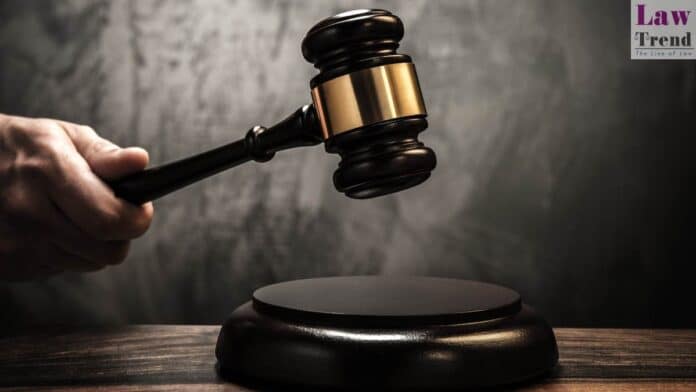A special court in Thane district has acquitted four persons charged under the stringent Maharashtra Control of Organised Crime Act (MCOCA) for dacoity at a college in 2012.
Special Judge Amit M Shete of the MCOCA court held that the prosecution has failed to prove the charges against the accused, who need to be given the benefit of doubt and acquitted.
The accused, in the age group of 33 to 50, are residents of Ulhasnagar area in Thane and Nalla Sopara in neighbouring Palghar district.

Another accused person died during pendency of the case and hence the trial against him was abated.
Special Public Prosecutor Sanjay More told the court that on July 18, 2012, the accused carried out a dacoity in the office of a college in Bhiwandi area after assaulting the watchmen and tying them up.
The accused ransacked the office and also looted Rs 1,65,000 in cash, the prosecution told the court.
Advocates Poonit Mahimkar and Pankaj Kavale, appearing for the accused, contested the case and punched holes in the prosecution and police probe into the crime.
In the order, the judge noted the prosecution lastly examined the Thane commissioner of police as prosecution witness who accorded sanction (for charges under the MCOCA).
It is worth mentioning here that the sanction as contemplated under Section 23(1) and (2) is regarding taking cognisance of and investigation into an offence under the MCOCA, the court said.
The judge referred to a judgement of the Bombay High Court which said the “sanction is not granted to special court to take cognizance of the offence, but it is granted to the prosecuting agency to approach the court concerned for enabling it to take cognizance of the offence and to proceed to trial.”
Thus, on bare perusal of Section 23(1) and (2) coupled with the ratio noted above, the purport and object laid down under Section 23 is enabling the investigating machinery to apply and obtain sanction so as to implicate accused under the MCOCA and thereafter enabling the special court to take cognizance under the MCOCA, the court said.
“Hence, the purpose of grant of sanction is enabling the competent police authority to accord sanction on seeing the criminal record of the particular accused. Thus, the evidence of this witness is only restricted for grant of sanction and the accord of sanction means and presupposes that the accused are having criminal antecedents,” it said.
The evidence of this witness is restricted to the criminal antecedents of the accused and to the extent of grant of sanction, it further said.
The evidence of this witness goes to show that the accused are having criminal antecedents. The prosecution also produced on record the previous charge-sheets filed against the accused persons, the court said.
On the basis of the said material, one can say that the accused are having criminal background and therefore, the provisions under MCOCA are rightly and properly invoked, it said.
“However, for the reasons noted above, the prosecution witnesses can be said to have failed to prove the offence which is initially punishable under Indian Penal Code and thus, the charge under the MCOCA also can also be said to have failed,” the court said.
Also Read
The prosecution relied upon the evidence of informant along with other witnesses. However, it is pertinent to note that the witnesses so examined on various memorandum cum seizure panchnama are the employees of the same college where the robbery took place, it said.
This also creates doubt regarding the evidence so brought on record through these witnesses. The sole eyewitness is not sufficient to say that the prosecution witnesses have, in fact, succeeded to bring home the guilt of accused that too beyond all reasonable doubt, it said.
The evidence so brought on record falls short so as to say that the witnesses succeeded in establishing the chain of circumstances, the court said.
“In absence of the same, the reasonable doubt raises regarding the complicity of present accused in the alleged crime. Thus, the benefit of doubt needs to be extended to the accused,” the court said.







